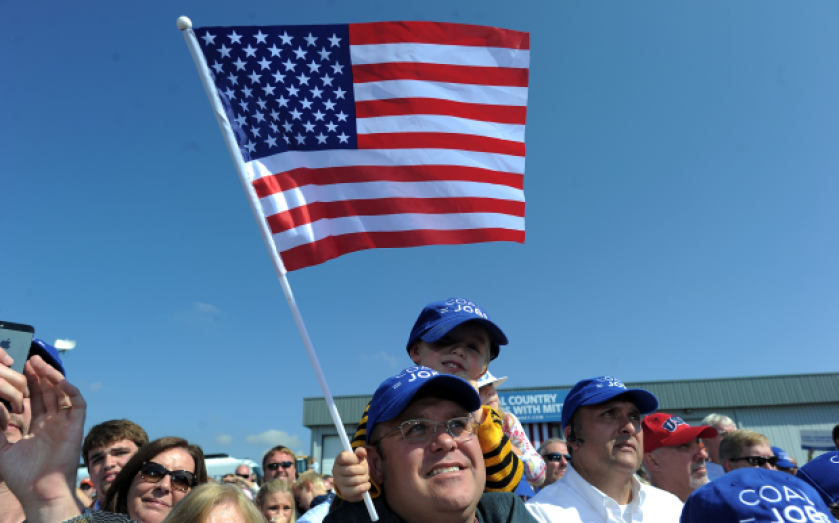We don’t need to look to US Republicans to find a crisis in conservatism

RELATIONS between the UK Conservative Party and US Republicans are at an all-time low. Ask some Republicans their view of David Cameron’s Tories, and many talk disparagingly of “Barack Obama’s friends”.
And many Conservatives aren’t unhappy about this, with the conventional wisdom on the state of US politics recently expounded by Tory MP Jesse Norman. This claims that the Republicans are in disarray, and that US conservatism “has all but lost its way… with dim memories of what it meant to be a conservative: to believe in limited government, in respect for states’ rights, in a strong nation, in fiscal discipline, in free trade and individual liberty.”
This conventional wisdom is wrong. The problems faced by the Republican Party and US conservatism (which are not synonymous), and indeed their perceived “radicalism”, are all overblown.
Take the supposed Republican crisis. The party holds 30 state governorships, compared to 20 Democrat. It has a majority in the House of Representatives. While it is in the minority in the Senate, statistical guru Nate Silver reckons “Republicans might now be close to even-money to win control of the chamber after next year’s elections”. Yes, it lost the 2012 Presidential election, despite Mitt Romney’s views being closer to the median voter. This led to inevitable questions of strategy surrounding demographics and the need to “modernise”. But radical divisions?
Republicans have been united in opposing Obama’s economics and his signature healthcare legislation. And Democrats are distancing themselves from Obama’s record, as his approval rate has fallen to near its all-time low. Looking ahead, Republicans have a far more talented potential Presidential primary list for 2016 than for 2012. The candidates differ. But it was ever thus.
US conservatism isn’t in crisis either. Gallup polling shows 42 per cent of Americans self-identify as conservatives, compared to 21 per cent for liberals. Even independent voters say they are conservative 35 per cent of the time. That’s a healthy base on which to build a coalition around conservative ideas.
The 2010 Congressional elections showed the potential power of the wider movement, with grassroots groups holding candidates to account on exactly the principles Norman extols, and which many Republicans had previously abandoned. The Tea Party’s successes and recent support for senator Rand Paul’s filibuster (questioning the use of drones on non-combat US citizens) are great examples of this activism. US politicians now discuss these conservative themes far more regularly than their UK counterparts, who rarely even mention “liberty” or the virtue of small government.
What of the supposed “radicalism”? Republicans fiercely oppose much of Obama’s agenda, especially on economics and healthcare. But then Obama promised to “fundamentally transform” the country, so is it surprising conservatives take a hard line? Polling frequently shows the majority of the US public has views on these issues closer to the Republicans. And while Republicans are seen as more conservative than in 1976, Democrats are also perceived as more liberal than in 1980. Yet we hear little of Democrat radicalism. Norman laments “hostility to illegal immigrants, to gay couples”. Yet opposition to amnesty for illegals (on the basis of the rule of law) and gay marriage are issues on which many Tory MPs would agree.
The Tory Party has far more to worry about. Collapsing party membership and the rise of Ukip as an alternative force threaten to cost the Tories a majority. This is at least in part their own doing, by adopting a so-called progressive agenda prior to the crash and delaying attempts to articulate a positive conservative vision. Next year will see both Senate and EU elections. If I were a betting man, I’d put money that if we are discussing a “conservative crisis” afterwards, it won’t be Stateside.
Ryan Bourne is head of economic research at the Centre for Policy Studies. @RyanCPS